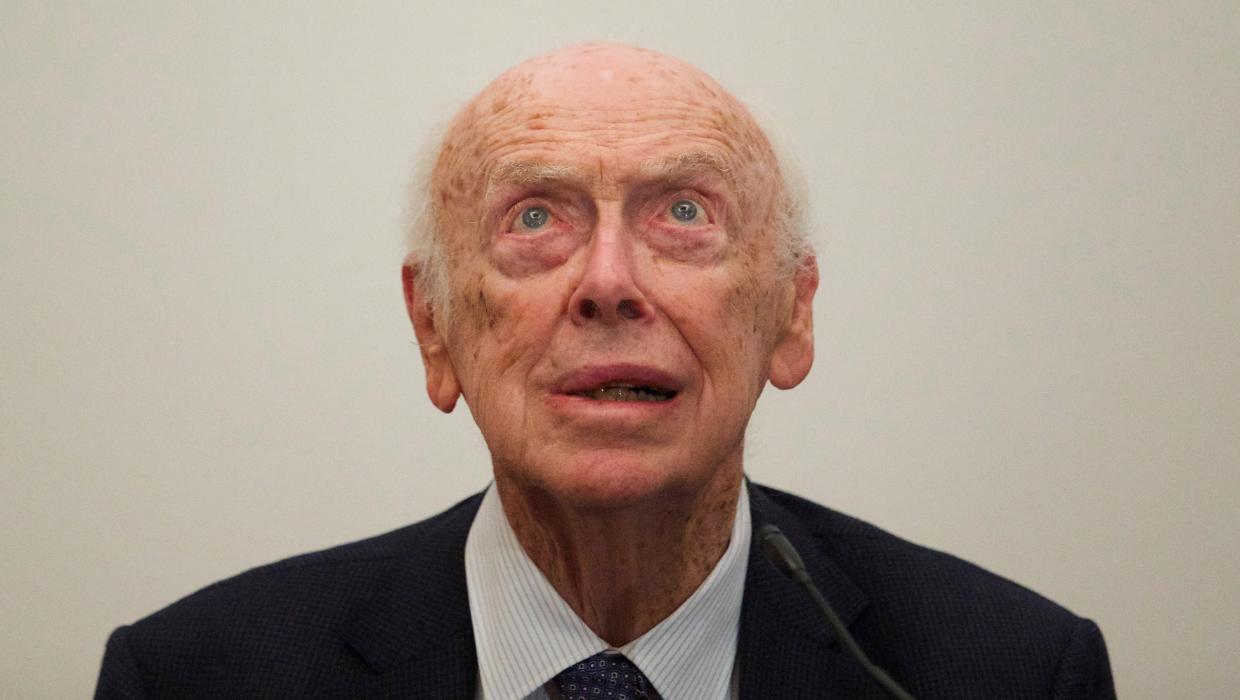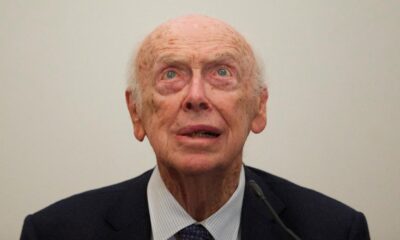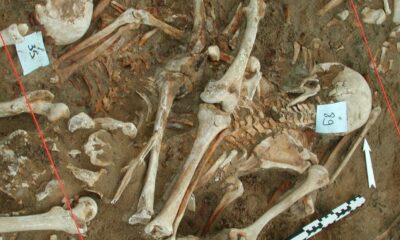Science
James Watson, Co-Discoverer of DNA Structure, Passes Away at 95

James Watson, the renowned scientist who co-discovered the structure of DNA, has passed away at the age of 95. His death marks the end of a significant chapter in the history of genetics, as Watson’s work in 1953 fundamentally changed our understanding of biology. Watson’s groundbreaking discovery of the twisted-ladder structure of DNA, alongside Francis Crick, earned both men the Nobel Prize in Physiology or Medicine in 1962.
Legacy and Controversy
Born in Chicago on April 6, 1920, Watson’s early academic pursuits led him to the University of Chicago, where he completed his bachelor’s degree in zoology. His collaboration with Crick at the University of Cambridge culminated in a publication that unveiled the double helix model of DNA, a moment hailed as the “discovery of the century.” This work not only revolutionized molecular biology but also opened the door for advances in genetics, biotechnology, and medicine.
Despite his scientific achievements, Watson’s later years were marred by controversy. He faced significant backlash for making offensive remarks on race and intelligence, leading to professional censure from various scientific communities. In 2014, the Cold Spring Harbor Laboratory, which he had led for over four decades, stripped him of his honorary titles, reflecting a broader condemnation of his views.
A Life of Contributions
Throughout his career, Watson authored several influential books, including “The Double Helix,” which provides an insider’s view of the discovery process. His contributions to science extend beyond DNA, as he was also involved in various research initiatives that explored the implications of genetic research. Watson’s work laid the groundwork for modern genetics, impacting fields such as medicine, agriculture, and forensic science.
Watson’s legacy is complex, marked by both monumental scientific breakthroughs and contentious personal views. His passing invites reflection not only on his contributions to science but also on the ethical responsibilities that come with such influence. The scientific community will continue to grapple with the implications of his work and words as they honor the legacy of a figure who played an undeniable role in shaping contemporary biology.
Watson’s death serves as a reminder of the duality of human achievement—where groundbreaking discoveries can coexist with profound personal controversies. As the world remembers him, it is essential to acknowledge both the advancements he championed and the debates he ignited during his lifetime.
-

 Sports2 months ago
Sports2 months agoNetball New Zealand Stands Down Dame Noeline Taurua for Series
-

 Entertainment2 months ago
Entertainment2 months agoTributes Pour In for Lachlan Rofe, Reality Star, Dead at 47
-

 Entertainment4 weeks ago
Entertainment4 weeks agoNew ‘Maverick’ Chaser Joins Beat the Chasers Season Finale
-

 Sports6 days ago
Sports6 days agoEli Katoa Rushed to Hospital After Sideline Incident During Match
-

 Sports2 months ago
Sports2 months agoSilver Ferns Legend Laura Langman Criticizes Team’s Attitude
-

 Politics1 month ago
Politics1 month agoNetball NZ Calls for Respect Amid Dame Taurua’s Standoff
-

 Entertainment2 months ago
Entertainment2 months agoKhloe Kardashian Embraces Innovative Stem Cell Therapy in Mexico
-

 Sports3 days ago
Sports3 days agoJamie Melham Triumphs Over Husband Ben in Melbourne Cup Victory
-

 World3 months ago
World3 months agoPolice Arrest Multiple Individuals During Funeral for Zain Taikato-Fox
-

 Sports3 months ago
Sports3 months agoGaël Monfils Set to Defend ASB Classic Title in January 2026
-

 Entertainment1 month ago
Entertainment1 month agoTyson Fury’s Daughter Venezuela Gets Engaged at Birthday Bash
-

 Sports1 month ago
Sports1 month agoHeather McMahan Steps Down as Ryder Cup Host After Controversy





















